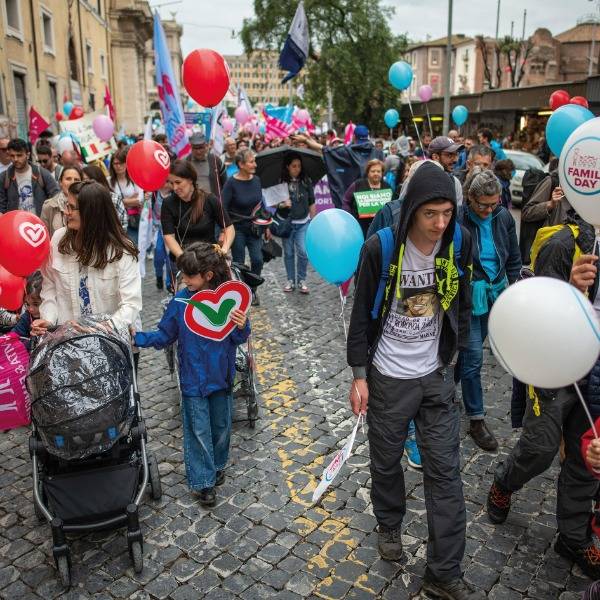
In contrast to those who might argue for the right to die so as not to become a burden on their families should they become debilitated, he claimed: “I do want to be a burden on my loved ones just as I want them to be a burden on me – it's called looking after each other.”
This, of course, is true. When we are sick, we should expect to be looked after by those who love us, just as we would look after them. At the end of life, when sickness has reached a point of incurability, we similarly should expect loved ones to stress that we are not burdens. Love ties us into mutual responsibility. No argument there.
But in terms of the euthanasia debate, Fraser is arguing that the “burden” argument is not enough to justify the case for euthanasia reform. He may be correct in this, but fears around being a burden are something of a straw man here; this is only one reason, and arguably not the most important, that the majority support a reframing of the law. And though he starts with this, his argument then hinges on two different, and equally troubling, premisses.
The first is an inconsistent critique of “liberal individualism”, the second the creepy Christian idea that equates suffering with beauty.
On autonomy Fraser writes
Obviously, I know people are terrified of the indignity of dying and of being ill generally. Having someone wipe our bums, clean up our mess, put up with our incoherent ramblings and mood swings is a threat to our cherished sense of personal autonomy.
It’s true that the loss of autonomy is an important reason most opt for euthanasia. Robert Young, in his in-depth analysis of euthanasia, highlights several studies which confirm this.
What’s strange is how Fraser confirms that personal autonomy matters, then effortlessly proceeds to dismiss the claims of autonomy when it comes to perhaps the most important choice you should have in life: choosing when to end it.
But this is where the liberal model of individual self-determination breaks down. For it is when we are this vulnerable that we have little choice but to allow ourselves to be loved and looked after. Lying in a bed full of our own faeces, unable to do anything about it, is when we break with the idea of René Descartes' pernicious "I think therefore I am".
It’s not really clear what he means by “the liberal model of individual self-determination”. If he’s saying autonomy has limits, I’m not sure who would disagree. We all have the capacity to lose our rationality, our capability, and indeed all those properties which allow for autonomy at all.
Autonomy matters a great deal – but has limits, naturally. However, these limits are reneged when we reach a point where we can no longer look after ourselves.
This doesn’t mean, however, that you could not have made plans or provisions before such a loss occurred: which is why people plan in advance before the loss occurs, with wills, advance directives, travelling to euthanasia clinics, and so on.
Fraser seems to see a kind of nobility in debilitation, in the recognition of powerlessness and acceptance that we are loved no matter how we smell or behave. It is no coincidence that this reflects his theology, the Christian idea of humans as broken sinners who must recognise their ultimate powerlessness and accept the unconditional love of god. The most insidious effect of this theology is to dignify suffering, in fact to elevate it to the very highest echelon of value (the image of Jesus on the cross suffering nobly for all our sins).
Fraser takes on the voice of a loved one caring for a person dying. He claims that he would clean someone up and that the sick person is not a burden. But he makes an extraordinary leap:
‘Shut up about being a burden. I love you. This is what it means to love you.’ Surely, there is something extraordinarily beautiful about all of this.
Imagine telling someone dying from an incurable disease, enduring excruciating pain or numbed by pain medication, to “shut up”; imagine telling them their horrible biological destruction is “beautiful”; imagine forcing someone into continuing an existence they no longer want for the sake of this beautiful pain.
This isn’t love, this is intimidation, this is bullying. Loving someone also means knowing when to say goodbye, when to let that person go. This doesn’t mean we leap immediately for the overdose, as soon as possible. It doesn’t mean we are heartless, numb, thoughtless ourselves and choose euthanasia. We will fight, we will be angry, scared. We will do what we can.
But we can and must also prepare.
Love also means sacrifice: putting a loved one before yourself. If they request death, you sacrifice your selfish desire to keep them alive because “this is what it means to love”.
There is nothing beautiful about needless suffering. This horrible Christian retardation of what is beautiful is nowhere more horrible than when applied to real-life cases of people wanting to die.
Fraser also muddles up what constitutes a good death. His problems with euthanasia are, ironically, solved almost entirely by proper and ethical euthanasia policies (in other words, the very thing he is opposing).
The contemporary ‘good death’" is one that happens without the dying person knowing all that much about it. But what about the need for time to say goodbye and sorry and thank you?
Fraser seems confused. Many talk about being with their loved ones, at their appointed time, after they’ve said goodbyes and watching them pass away. Why would you choose anything else? This is part of what makes a good death good.
Second, places like euthanasia clinics provide a lot information to their patients about the procedure. Being able to manage your death means precisely you can choose when to do it, thus allowing you time to say goodbyes and make preparations. It’s precisely that people can control their own deaths via euthanasia that allows them this time Fraser rightly claims is important.
Fraser is right to remind us that love matters even until the end and that we cannot banish pain from life.
But his rhetorical slipperiness, his inconsistency and especially his restatement of the grisly Christian ethic of noble suffering are an unwelcome distraction from an important, real-world debate.

